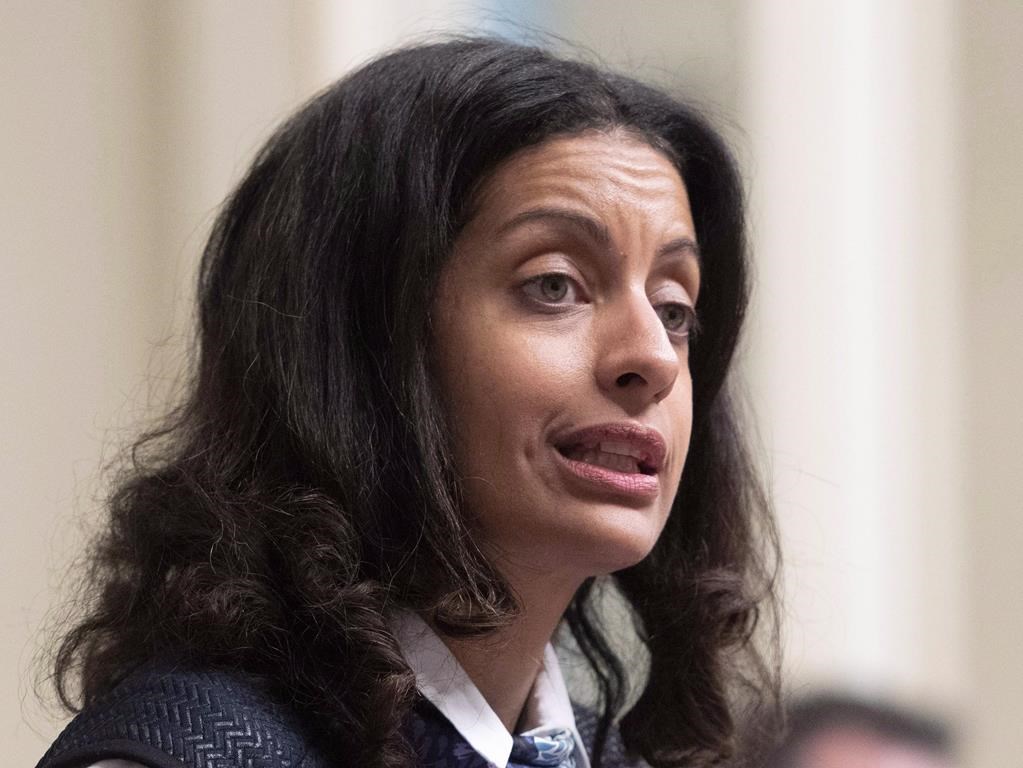Dominique Anglade made history this week when she was named leader of the Quebec Liberal Party (PLQ), becoming the first woman to lead the party and the first Black woman to lead any provincial party in Quebec’s history.

The party’s leadership election came to a sudden conclusion when Anglade’s only opponent, former Drummondville mayor Alexandre Cusson, dropped out of the race, leaving Anglade to be named leader.
The Saint-Henri-Sainte-Anne MNA told Global News Morning she’s found the experience “humbling.”
“I feel a great sense of responsibility of representing all the people that see me as a model because I’m the daughter of immigrants, because I’m a female, but I’m really excited about what we have to accomplish,” she told Global’s Laura Casella.
The 46-year-old was first elected to the National Assembly in a 2015 byelection and served as deputy premier from 2017 until the Couillard government’s defeat in 2018. But she has taken the helm of a party in the political wilderness: after governing Quebec with only one 18-month interruption since 2003, the party won just 32 seats and less than 25 per cent of the provincewide vote in the 2018 provincial election, which thrust Premier François Legault and the Coalition Avenir Québec into power for the first time.

Get daily National news
After several floor-crossings and byelection losses, the Liberals now hold just 28 seats, and for the first time in its 150-year history, the party holds no seats east of the island of Montreal.
But Anglade is optimistic about the challenges that lie ahead. She called her first appearance in question period as Opposition leader “very constructive” and said she hopes to keep that tone up in the weeks to come.
Taking over the Opposition leadership in the midst of a pandemic that has hit Quebec, and Montreal in particular, harder than anywhere else in Canada has meant an additional challenge. Anglade recognized that few people have an appetite for partisan politics right now and said she’s focusing on parsing what the government’s getting right and what it isn’t.
“The very beginning of the crisis, I think, was well-managed in terms of communication,” she said. “But right now, we have issues because not enough data is available to make decisions; people feel like we’re not making decisions based on facts.”
Anglade said the Legault government “has to be more systematic in their approach” to the crisis and, in particular, called for a large increase in the province’s testing capacity.
“Look at the data. For weeks, we’ve been saying we need to increase the level of testing, the minimum was 14,000, they were even talking about bringing it to 30,000, and right now, we’re not even at 10,000,” she said.
She also said that based on the data available right now, she doesn’t think reopening the economy in Montreal “is the way to go” for now.
As for what Quebecers can expect from her leadership of the PLQ, Anglade said she was in favour of open debate among the membership, a potential change for a party often criticized for top-down decision making.
“Clearly, I want to make sure that the members have a voice so they can be a part of the renewal (of the party),” she said.
“I’m a big fan of having debates.”








Comments
Want to discuss? Please read our Commenting Policy first.